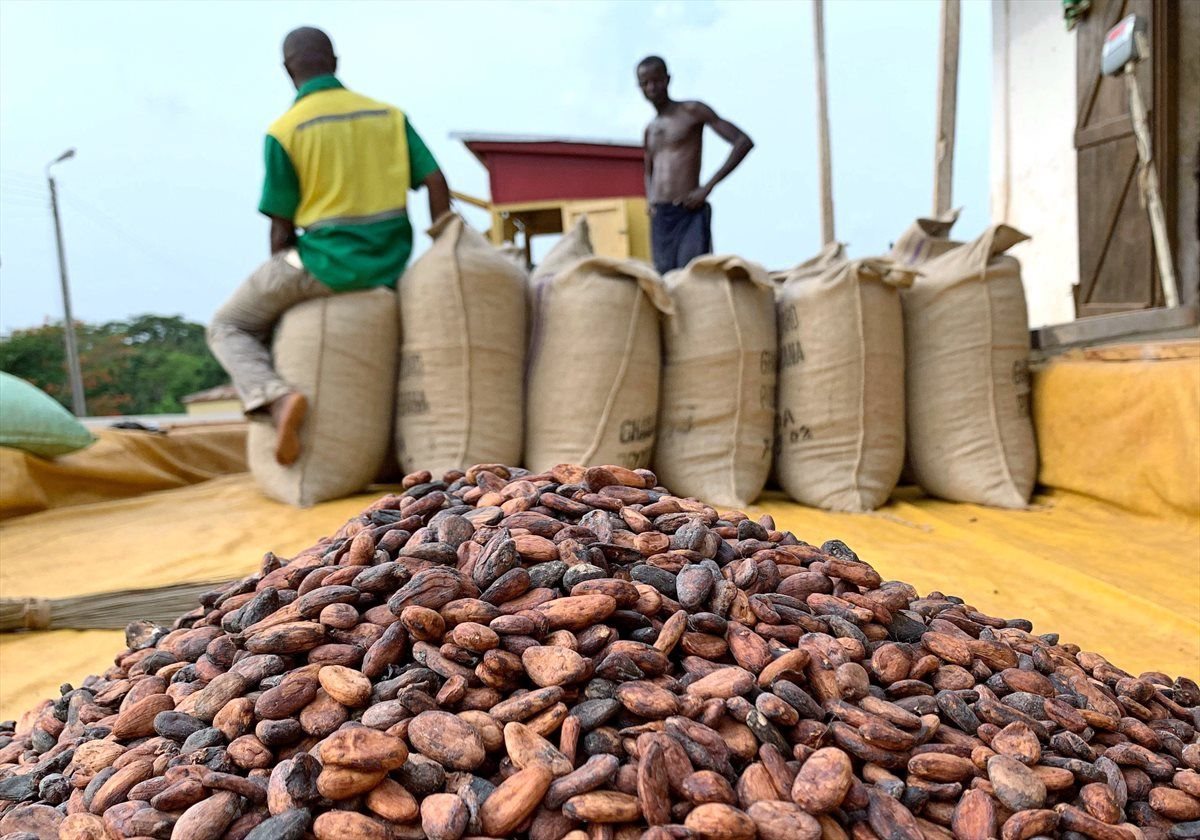Ghana's Cocobod will use part of a $200m World Bank loan to rehabilitate plantations destroyed by the cocoa swollen shoot virus, which causes drops in yields and kills trees, the regulator's deputy CEO in charge of operations said on Thursday, 15 February.

FILE PHOTO: Cocoa beans are pictured next to a warehouse at the village of Atroni, near Sunyani, Ghana April 11, 2019. Picture taken April 11, 2019. REUTERS/Ange Aboa/File Photo
The disease has wiped off about 500,000 hectares of farmlands and reduced cocoa output from the West African nation, the world's second-biggest cocoa producer after neighbour Ivory Coast.
Ghana's output declined to 600,000 metric tons last year after peaking at 1.048 million tons in the 2020/21 season, as the cocoa swollen shoot virus, ageing plantations, illegal mining and smuggling took a toll on the sector.
A total of $132.8m of the loan was secured by the government last year and the counterpart funding will finance Cocobod's rehabilitation of farms and help to enhance knowledge on the virus strains, a project information document showed.
>Mitigating risks
"The rehabilitation will take a minimum of five years to start getting economic production," Cocobod's Emmanuel Opoku told Reuters, adding that efforts had been hampered by the country's economic crisis and the board's limited funds.
The board will take over disease-infested farms, cut and replace sick cocoa trees, aiding growth to a fruiting stage before handing them back to farmers.
In 2018, Cocobod used part of a $600m Africa Development Bank (AfDB) loan to rehabilitate ageing plantations and those affected by the disease.
But the programme, originally meant to cover 156,000 hectares of plantations, was caught up in Ghana's worst economic crisis in a generation during which inflation spiralled and the cedi currency depreciated sharply, Opoku said.
He said the AfDB facility benefited more than 88,000 hectares of farmlands, of which 40,000 hectares were ready to be given back to farmers in "the coming days".
Alhassan Bukari, president of the country's Cocoa, Coffee and Sheanut Farmers' Association, told Reuters that rehabilitation efforts needed to be aggressive as many farmers were affected.
Ghana's graded and sealed cocoa arrivals fell by 35% between the start of this season on 1 September and 31 January this year due to the intensity of the seasonal dry Harmattan wind and what Cocobod described as production challenges.










































